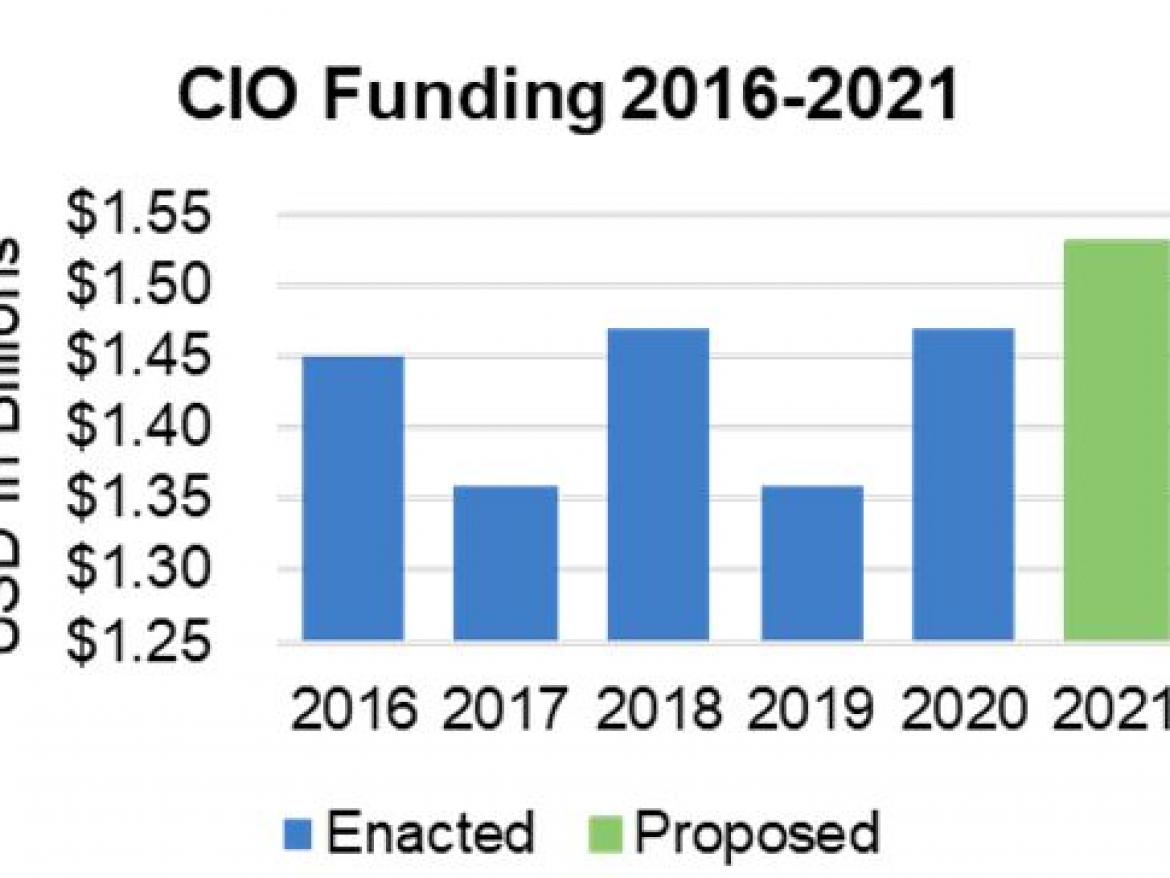The United States supports the regular budget of the United Nations through the Contributions to International Organizations (CIO) account. This account also funds the work of more than 40 U.N. affiliated agencies as well non-U.N. multilateral organizations such as the North Atlantic Treaty Organization (NATO) and the Organization of American States (OAS).
Background
The U.N. Charter requires all members to contribute to its core bodies and activities based on their Gross National Income (GNI). The United States is currently assessed to cover 22% of the U.N. regular budget, consistent with its proportion of global GNI and making it the largest contributor to the U.N. regular budget. This in turn provides the United States with greater influence in the allocation of the U.N. budget among specialized agencies.
In addition to U.N. bodies such as the World Health Organization (WHO) and International Atomic Energy Agency (IAEA), the CIO account funds other international organizations, including the civilian expenses of NATO. The CIO account facilitates collective action to address challenges that cannot be solved by single nations, such as pandemics, food security and nuclear safety.
CIO in Action
The Food and Agriculture Organization (FAO): The FAO continuously monitors global food supply and demand, assesses levels of food insecurity in vulnerable countries, and issues early warnings of impending food crises at the country and regional levels. It facilitates private-public partnerships to eradicate pests that threaten crops and livestock, and it supports the development of international standards of food safety.
Pan American Health Organization (PAHO): PAHO has been coordinating efforts across its 52 member countries and territories to prevent, detect, and respond to the COVID-19 pandemic. PAHO has built a hub to maintain and update COVID-19 epidemiological data, to promote international coordination and awareness of the situation in the Americas region, and to facilitate collection and dissemination of the most updated information available in order to reinforce national surveillance systems.
Investing in CIO
As this COVID-19 pandemic has shown, none of us are safe until all of us are safe. The United States alone cannot respond at the scale and breadth needed to tackle the crisis. However, multilateral organizations have provided a critical and coordinated global response to the COVID-19 pandemic. For example, NATO and the World Food Program have applied their massive air cargo resources to quickly move equipment, aid and staff to areas in need, while the WHO continues to lead global efforts on containing the pandemic and research and development of new treatment and a vaccine.
U.S. leadership and engagement in multilateral organization advances U.S. foreign policy objectives by building international cooperation and leveraging the collective financial contributions and capacity of partner nations. By combining resources and coordinating efforts, international organizations are a cost-effective and impactful element of U.S. diplomacy and national security. We urge Congress appropriate no less than $1.53 billion to CIO in FY2021.
We urge that no less than $1.53 billion be appropriated to the Contributions to International Organizations account in FY 2021.
The COVID-19 pandemic has highlighted the need for U.S. engagement in multilateral organizations to advance U.S. interests and leadership in a time of global crisis.

